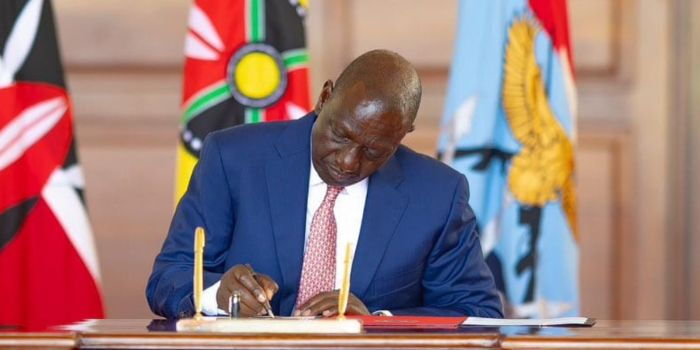The government has announced plans to introduce mandatory Unique Personal Identification (UPI) numbers and a stricter vetting process for all public employees to address the long-standing issue of ghost workers.
These measures were outlined in the Ministry of Treasury’s 2025 Draft Budget Policy Statement (BPS) released on Wednesday, pending approval by Parliament.
According to the proposals, the UPI system will be rolled out across all government departments, including constitutional commissions.
The system, similar to the one already used for students in Kenyan schools, will help the government accurately track its workforce and prevent fraudulent salary payments to non-existent workers, commonly known as ghost workers.
The Treasury highlighted that the UPI system will improve how human resources are managed in the public sector. It will allow better monitoring of employee welfare while ensuring that salaries and benefits are allocated only to legitimate workers.
“The government will implement a Unified Personal Identification system for all staff working across all branches of government, including constitutional commissions,” part of the statement mentioned.
Additionally, the policy stated that the system aims to eliminate payroll fraud across all government sectors. To enhance service delivery within the security sector, the government will also introduce the UPI system for police officers nationwide.
The security sector reforms will involve the digitization of police stations and services, as well as the modernization of security documents such as national IDs, passports, and other personal identifiers to simplify public access to essential services.
The draft policy further revealed that the government will continue with the public officers’ vetting process, initially launched during former President Uhuru Kenyatta’s administration.
This vetting aims to ensure transparency and accountability among public servants.
A centralized system will be established to store all findings and recommendations from the vetting process, enabling better monitoring and management.
“The government will establish a legal and institutional framework to make the continuous vetting of all public officers mandatory.
The same system will serve as a central database for wealth declarations by public servants across all government offices,” the BPS explained.
The BPS was prepared in line with the Public Finance Management Act of 2012, which requires the government to outline its strategic goals and financial priorities for the upcoming years.
The document provides a macro-fiscal outlook and serves as a foundation for the government’s 2025/26 financial year budget planning.
Join Kenyan Gen z and millennials official WhatsApp Channel To Stay Updated On time the ongoing situation https://whatsapp.com/channel/0029VaWT5gSGufImU8R0DO30
Tiktok – https://www.tiktok.com/@news.hub88?_t=ZM-8sz45qJid3V&_r=1


